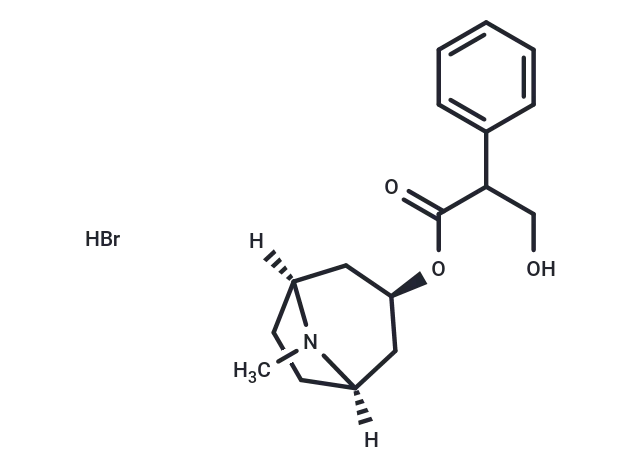Download Files:
2,432 CAD
Only 1000 item(s) left in stock.
Products Details
Product Description
– Atropine hydrobromide is a biochemical.
Web ID
– T30206
Storage Temperature
– -20℃
Shipping
– Blue Ice
Molecular Formula
– C17H24BrNO3
References
– Lan X, Zeng J, Liu K, Zhang F, Bai G, Chen M, Liao Z, Huang L. Comparison of two hyoscyamine 6β-hydroxylases in engineering scopolamine biosynthesis in root cultures of Scopolia lurida. Biochem Biophys Res Commun. 2018 Feb 26;497(1):25-31. doi: 10.1016/j.bbrc.2018.01.173. Epub 2018 Jan 31. PubMed PMID: 29407173.
CAS Number
– 6415-90-3
Molecular Weight
– C17H24BrNO3
SMILES
– Br.[H][C@]12CC[C@]([H])(C[C@@H](C1)OC(=O)C(CO)c1ccccc1)N2C
Pathway
– Others
Product type
– Small Compound
Disclaimer: All products are for Research use only unless clearly stated otherwise on the product datasheet. Datasheets provided on the website are drafts for reference purpose only and you are requested to always refer to the hard copy included in the kit for your experimentation. Agdia Products are available for delivery only in Canada.
Related Products
1000 in stock
1000 in stock
4-Hydroxy-6-methylcoumarin
46 CAD – 78 CADPrice range: 46 CAD through 78 CAD
1000 in stock
4-Methoxycoumarine
56 CAD – 266 CADPrice range: 56 CAD through 266 CAD
1000 in stock






